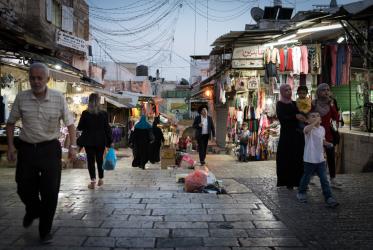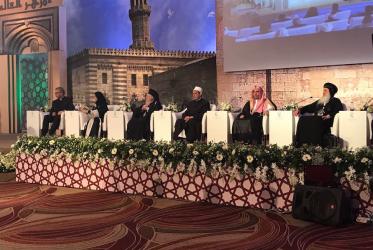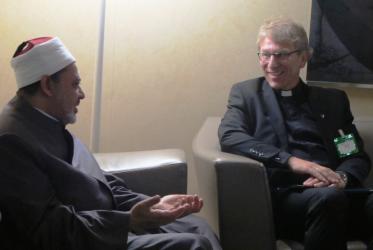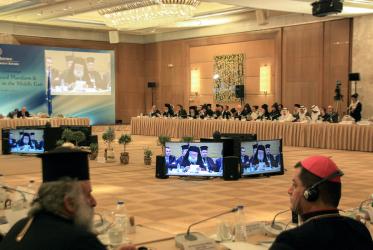Displaying 1 - 11 of 11
13 March 2019
Paving the way for ecumenical studies, learning English in Bossey
24 September 2018
Trying to do good for the world
18 December 2017
“There are no strangers here” – Saint Irenaeus a key to unity?
19 December 2016
Dialogue flourishes between WCC, Muslim Council of Elders
30 September 2016
Pilgrimage and youth
28 June 2016
International conference addresses challenges in the Middle East
22 October 2015
Local and global work saves lives
22 October 2015







